It's all about the classical music composers and their works from the last 400 years and much more about music. Hier erfahren Sie alles über die klassischen Komponisten und ihre Meisterwerke der letzten vierhundert Jahre und vieles mehr über Klassische Musik.
Total Pageviews
Sunday, September 17, 2023
Most Popular Song Each Month in the 90s
Friday, September 15, 2023
Six of the Best Romantic Era Piano Sonatas by Women Composers
By Emily Hogstad, Interlude
Fanny Mendelssohn Hensel: Easter Sonata in A-major (1828)
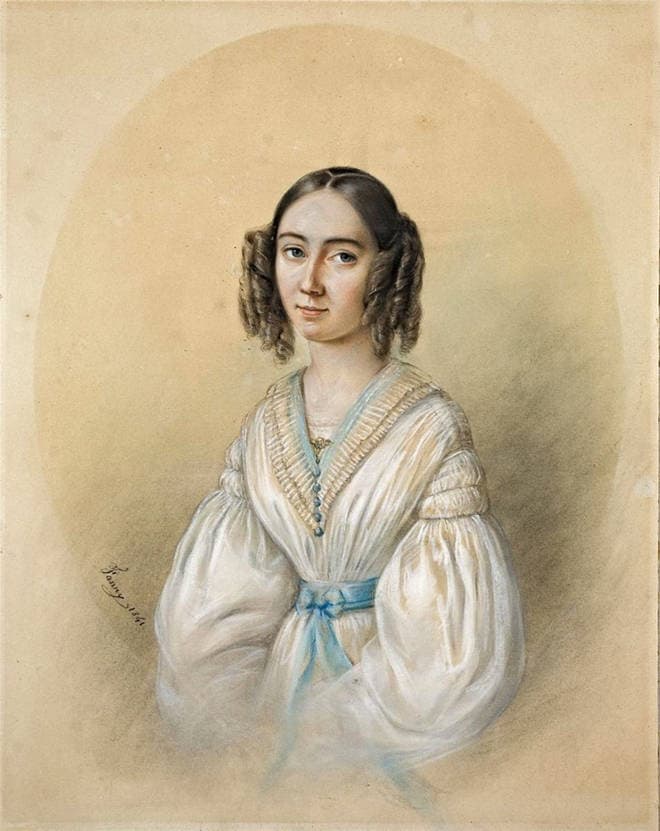
Fanny Mendelssohn
In 1970, a piano sonata manuscript was discovered in France. It was signed “F. Mendelssohn” and promptly attributed to Felix. Some musicologists, however, had doubts as to its authorship. In 2010, music professor Angela Mace Christian took a serious look at the manuscript and proved that it had been cut out of a composition book kept not by Felix, but by his sister, Fanny Mendelssohn Hensel.
The sonata is programmatic and portrays the death of Jesus (hence the sonata’s “Easter” nickname). The final movement describes the New Testament story of how the curtain in the Jerusalem Temple was torn in half at the moment Jesus died. That is followed up by the finale’s fantasy on the chorale hymn “Christe, du Lamm Gottes” (Christ, the Lamb of God). It’s a fabulous sonata that reminds us that music history isn’t always what it seems!
Clara Schumann: Piano Sonata in G-minor (1841-42)
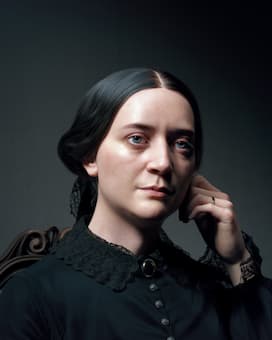
Clara Schumann 3D Render © Hadi Karimi
For Christmas 1841, Clara Schumann gave an incredibly thoughtful gift to her new husband Robert. They’d been married the year before and had embarked together on a self-guided composition study, focusing especially on counterpoint. Clara had their first baby in September 1841, but pregnancy and raising a baby girl didn’t keep her from composing. She gave Robert the manuscript of the first two movements of her piano sonata for Christmas 1841. Later, she rounded the sonata out with the final two movements. However, she never played the piece in public, and it wasn’t even published until 1991.
Elfrida Andrée: Piano Sonata in A-major (1870)
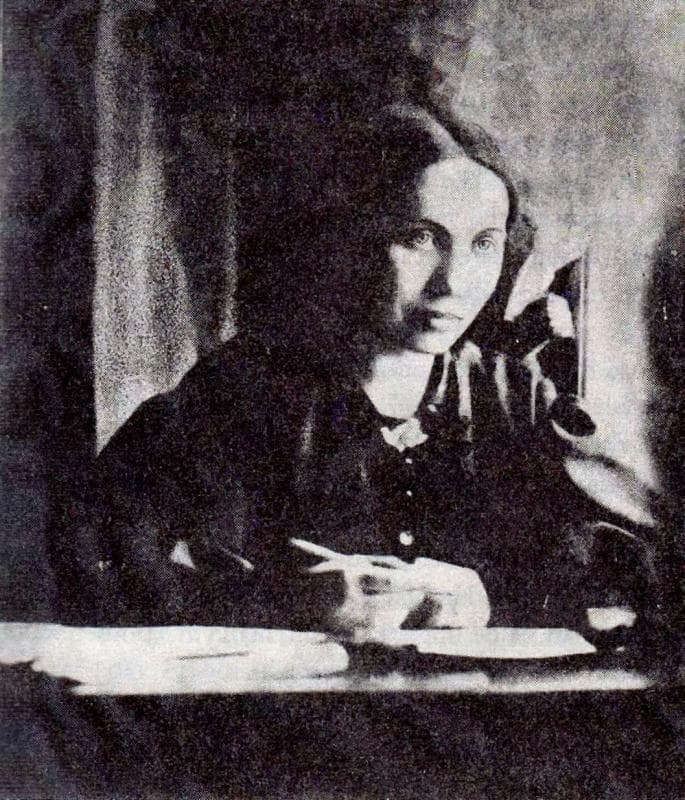
Elfrida Andrée
Elfrida Andrée was born in Visby, Sweden, in 1841. She initially made her name as an organist, and at the age of 26 was appointed organist at the Gothenburg Cathedral, making her one of the first professional women organists in Scandinavia. She kept that job for a staggering sixty-two years, working until her death. She also conducted and composed, and was an activist for women’s rights in Sweden.
Marie Jaëll: Sonate pour piano (1873)
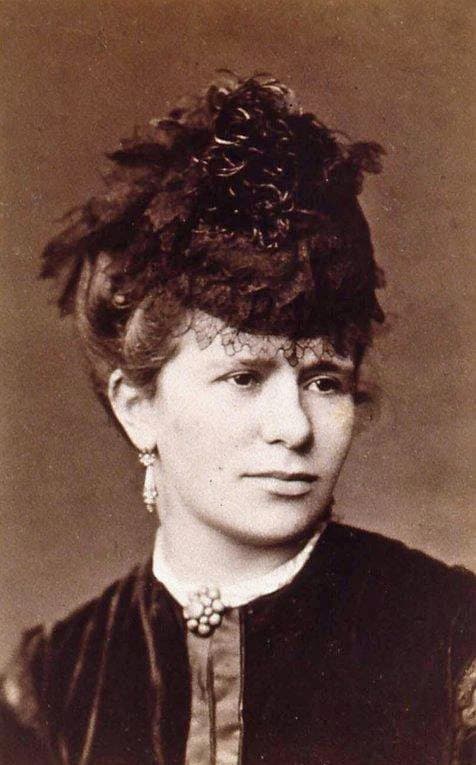
Marie Jaëll
Marie Jaëll was a passionate Romantic. She was born in 1846 in Alsace and enrolled at the Paris Conservatoire when she was sixteen. She married great pianist Alfred Jaëll when she was still in her teens, and a few years later, met Franz Liszt, who completely dazzled her. In her twenties, she began studying composition in earnest, garnering praise from giants of French music Franck and Saint-Saëns.
This piano sonata dates from 1873, the year she turned twenty-seven. It has a quality of great, serious restlessness. The work was dedicated to Liszt, and it’s easy to see his influence in the sonata, from its frequent chromaticism and bold harmonic exploration to its sheer technical difficulty.
Laura Valborg Aulin: Piano Sonata in F-minor “Grande Sonate sérieuse” (1885)
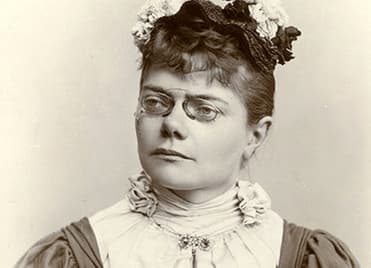
Laura Valborg Aulin
Laura Valborg Aulin was born in Gävle, Sweden, in 1860. She began her musical studies with her pianist grandmother, then began attending the Royal Swedish Academy of Music, where she studied composition in addition to piano performance. In the mid-1880s she won the Jenny Lind Mendelssohn Travelling Fellowship, which gave her the necessary funds to study outside of Stockholm. In 1885, the year this sonata was written, she moved to Copenhagen to study with Niels Wilhelm Gade, before continuing on to Paris.
This masterful work may be inspired by Schumann’s third piano sonata, also in F-minor, which had a similar grand subtitle: “Concert sans orchestre” (Concerto Without Orchestra).
Cécile Chaminade: Piano Sonata in C-minor (1895)
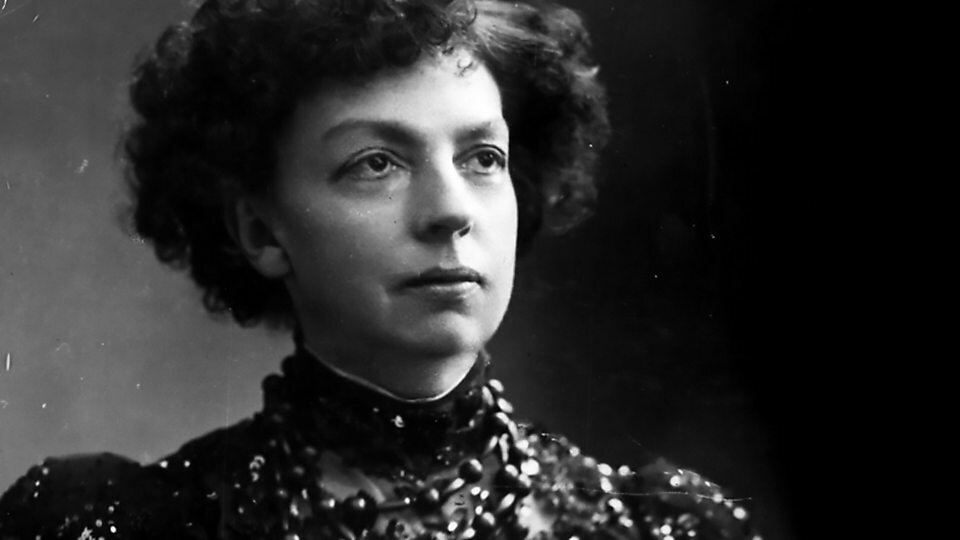
Cecile Chaminade
Although she has been widely forgotten today, and her music often unfairly trivialized, Cécile Chaminade was one of the most famous musical figures of the nineteenth century. She was a child prodigy who was kept from studying at the Conservatoire because her father forbade it. She was, however, allowed to study privately with some of the teachers who taught at the Conservatoire. When she was twelve, no less a figure than Georges Bizet praised her musical output.
Chaminade was extraordinarily prolific, composing around 400 works. She specialized in Romantic salon pieces that wore their hearts on their sleeves, many of them relatively technically accessible, which, combined with their beauty, made them big hits in the domestic sheet music market. In America, she grew so famous that so-called “Chaminade Clubs” began popping up around the turn of the century.
Her piano sonata in C-minor dates from 1895. It’s bold, virtuosic, beautiful…one might even say romantic.
Classical Music Apps
Nicolette Wong
For Children Beginning to Learn an Instrument
Flashnote Derby| iPhone, iPad, iPod touch
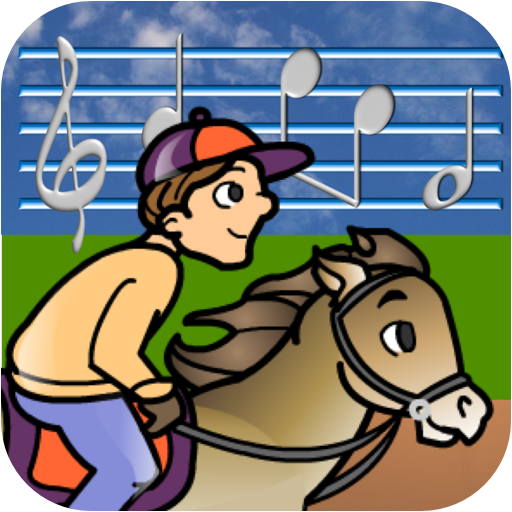
Learning to read notes is often a tedious process for young children. Flashnote Derby is a horse-racing game that makes it fun for kids to practise reading notes. In this game, each race is essentially a timed test in which notes appear on a stave at the top of the screen and the player has to identify these correctly in order to make his horse move forward. Incorrect answers will cause the horse to fall behind. Players can choose to answer by touching letter buttons or playing a key on the on-screen piano, or even by responding on their acoustic or MIDI instruments. Settings can be customised: you can choose between treble, bass, alto, or tenor clefs, or choose to focus on a specific range of notes including sharps and flats as well as key signatures. The duration of each note can also be decreased or increased to make it more or less challenging for the player. The best feature about this app is that each player’s performance is recorded so you can see which notes need more attention.
For Theory and Aural Training
Tenuto| iPhone, iPad, iPod touch

Theory Lessons | iPhone, iPad, iPod touch
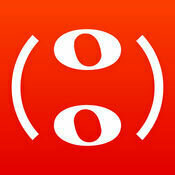
For those looking for theory practice exercises, Tenuto is the perfect app. This is a test-yourself app full of exercises for: i) note/ key signature/ interval/ scale/ chord identification; ii) note/ key signature/ interval/ scale/ chord construction; iii) keyboard/ note/ interval/ scale/ chord ear training. You can even choose keyboard or guitar fretboard identification. For theory lessons rather than tests or exercises, musictheory.net’s other app Theory Lessons provides animated lessons covering basic theory elements (such as ledger lines, time values, major/minor scales etc) to more complicated topics (such as chord progessions, Neapolitan chords, and voicing chords).
ABRSM Aural Trainer (Grades 1-5 and Grades 6-8) | iPhone, iPad, iPod touch
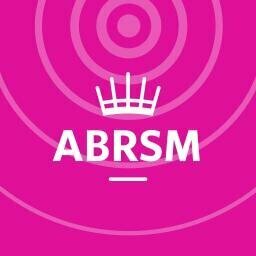
This official ABRSM aural training app is based on the components of the ABRSM aural tests, but is useful for anyone looking to improve their listening skills. These interactive exercises aim to improve your sense of pulse (so you can identify the metre), develop your musical memory (through repeating a melody or identifying differences in pitch and rhythm), improve sight-singing, and help you understand and spot the different characteristics of music composed in different periods via identifying features such as dynamics, articulation, tempo, and tonality. Some exercises are marked automatically, and you are able to compare your response against the sample response. Progress is also recorded so you can see what areas require more practice.
For An Alternative to Using Paper Scores
PiaScore| iPhone, iPad

Since the screens of electronic devices are somewhat limited to displaying one page of music realistically (as it is considerably constrained by the screen size), no app can really replace paper scores. Thus, I think the best feature of this sheet music viewer app is the access to the IMSLP (International Music Score Library Project/ Petrucci Music Library, allowing users to download a huge selection of classical music scores for free. It also supports Dropbox, and users can also transfer their own sheet music PDF files to piaScore via iTunes. Or you can scan scores by using the ‘camera capture’ feature. There is an option for automatic scrolling (for which you can adjust the speed), or you can turn pages manually by swiping to the left and right. You can also annotate scores as if using a pencil. Other useful features include a metronome, a link to related YouTube videos, a tuner, and a recorder. You can also connect to the AirTurn PED (Bluetooth pedal controller) or the piaScoreAir app (iPhone remote page turning controller) to facilitate page turning (both sold separately).
For Music Notation
Touch Notation | iPhone, iPad, iPod touch
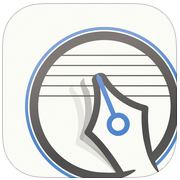
Kawai Musical Instruments has come up with an easy to use music notation app, which allows musicians to draw directly onto the on-screen score using a finger or touch pen. The layout is simple and uncluttered, with pull-out and swipeable circle controls in order to maximise on-screen workspace. Musical symbols, expressions and performance directions such as accents and change in dynamics and metronome symbols can easily be added as if you are writing freehand on the score, and the playback feature allows the user to selectively playback parts of the score. Completed scores can be emailed as PDFs, printed wirelessly using AirPrint, or saved to Dropbox etc. Other features that make it extremely helpful include the Copy and Paste function, the Transpose function and the Spacing function (to automatically adjust alignment) amongst others.
A Tool for Every Music Student
Touch Metronome | iPhone, iPad, iPod touch

From the same maker of Touch Notation comes this handy tool that is useful for anyone learning an instrument. This metronome is clear, accurate, and super easy to use, with a customisable layout – the size, colour, and position of the buttons can be moved, and you can even use a photo from your device as the background wallpaper. The tempo can be set in a number of ways, from swipping the big dial, to tapping on the tempo indicator, and it can also be easily halved or doubled by swipping down or up. There are also preset Italian tempo options to choose from. Likewise, you can swipe to select the number of beats in each bar, and you can choose to have certain beats accented or silenced. There is a button to choose rhythmic patterns within each beat, for example subdivision of each beat into quavers or triplets or to set a swing rhythm pattern. This is really one of the best metronome apps available on the market! For those looking for digital tuners, Kawai’s Touch Tuner app should also prove useful.
Thursday, September 14, 2023
Diamonds are Forever ( Live 2022 BAFTA's HD)
Wednesday, September 13, 2023
Santana - Maria Maria (Official Video) ft. The Product G&B
Most Popular Song Each Month in the 80s
Tuesday, September 12, 2023
Carl Maria von Weber - Andante e Rondo Ungarese, Op. 35 (1º Mov., Andante)
Embracing pop punk: Lesha's unique musical direction
BY MANILA BULLETIN ENTERTAINMENT
AT A GLANCE
Likewise, Lesha continues to be a game changer. She’s very fortunate to have worked with the best producers and writers in the world. She has learned a lot of new techniques writing wise and they also created a space for Lesha to be extra experimental with the tone of her voice jumping from one genre to another.

She has finally arrived! Yes, Lesha is heading her way to become today’s generation rockstar. And in just a short time, she’ll be able to share with you the latest song that’s about to drop the airwaves and for sure you’ll love it.
But apart of from dropping her soon to be hits, Lesha has already snagged a few career highlights in just a short span of time. And the 26-year-old independent singer slash songwriter slash music producer is very much thrilled and honored for all the breaks that she’s receiving.
For one, she has snagged a spot of having her own billboard in the dreamiest places on earth– New York Times Square! Whew, just imagine seeing a larger-than-life photo splattered on a high-rise NY building. That’s so awesome!
Lesha shared about that episode, “I freaked out the moment I got the news! I always dreamed of having a billboard with my name and face on it but I never imagined it to happen so soon and on such a large scale! It was literally a dream come true to see my face on a large billboard representing The Philippines in the middle of New York Times Square for Spotify Equal.”
Recently, she has received not one but two nominations for The New Hue PH awards giving significance in recognizing and celebrating the creators and visionaries who push the limits of music videos.
Lesha was very ecstatic to be given such recognition. She shares, “I had no expectations when I got nominated so I’m extremely grateful for New Hue PH for recognizing me at their awards this year for Best Female Artist and Best New Artist.
Their platform is all about showcasing upcoming artists/DJs and uplifting the OPM scene which gives us all a chance to come together as a community.’

Aside from that, she just hit the first million mark for her pain infused anthem, Ciao Bella song on both Spotify and TikTok platform recently. Wow, that’s a lot of listeners repeating the song in their playlist, and it isn’t a surprise that a lot would relate to this hymn because of the melodies and lyrics that hits the heart straightforward.
“I honestly couldn't believe my eyes. It’s a huge milestone for me to finally hit my first 1M on a song. I wrote, produced, and filmed the music video of Ciao, Bella in my bedroom during the peak of the pandemic so it’s a cool feeling to see how far I’ve come in my career, and it always reminds me of my humble beginnings,” Lesha revealed.
So many good things coming along her way, Lesha remains optimistic on more progress career wise for the next coming days.
Likewise, Lesha continues to be a game changer. She’s very fortunate to have worked with the best producers and writers in the world. She has learned a lot of new techniques writing wise and they also created a space for Lesha to be extra experimental with the tone of her voice jumping from one genre to another.
With this, Lesha shared some of her exciting experiences when it comes to experimenting music, “I have a couple of favorite sessions but the most memorable one was with LA producer Dela, singer-songwriter KAJO, and James Reid when we wrote “Skin2Skin” (still unreleased but I normally perform this song live cause the crowd goes crazy every single time I play this song!). We were in our home studio in LA, and it was also my first time working with Dela. He came up with some nice sad chords and I told him how I wanted to make a danceable sad pop song. James and Kajo hopped on to help with some melodies and around 3 hours later we finished the song and knew it was an instant hit. It was such a fast song to write, and we were all just on a roll! Dela and his fiancé Krizia recently visited Manila to write more tracks with me and the other
Careless artists so we were able to cook up a couple more songs that are part of my upcoming releases this year!”
Expect Lesha to be fiercer when it comes to her musical choices. Comparing how she has presented her music from before and now; Lesha is gearing towards a new approach.
“Personally, I think there’s a big jump from my previous works versus the ones I’m set to release in terms of the writing style and genre. As I’ve been experimenting with the Pop Punk genre, I’ve just naturally gravitated toward it the more I wrote new songs. My dark and edgy side is getting amplified with these new songs!”
See Lesha’s fiercer and more direct style when it comes to handling herself and her music in the next few days to come. For sure, she will surprise you with her upcoming songs set to be launched in the next coming months!
Over 12 classic OPM artists at ‘Tugtugan Sitenta 2’ — Sept. 15 at Newport Performing Arts Theater
BY MANILA BULLETIN ENTERTAINMENT
AT A GLANCE
In the Philippines, the ’70s was the decade that saw an explosion of pop, folk, rock, blues, R&B, soul, disco and other genres created and performed by some of the best homegrown artists.

The 1970s come alive on Sept. 15 at the Newport Performing Arts Theater with “Tugtugan Sitenta 2,” a repeat of the well-received concert tribute to the first golden age of Original Pilipino Music (OPM).
In the Philippines, the ’70s was the decade that saw an explosion of pop, folk, rock, blues, R&B, soul, disco and other genres created and performed by some of the best homegrown artists.
“Tugtugan Sitenta 2” — which will have Leah Navarro and Marco Sison joining the original roster of performers — features Nonoy Tan and Rey Magtoto of Wadab, Boyfriends lead vocalist Joey Abando, Mon Espia of Labuyo, Male Rigor and Monet Gaskell of VST & Co., Sampaguita, Mike Hanopol, and Pete Gatela, Carlos Parsons and Yujin Baydal of Hagibis.
Showtime is at 8 p.m. Newport Performing Arts Theater is at the Newport World Resorts, Pasay City. https://premier.ticketworld.com.ph/shows/show.aspx?sh=TUGTUGAN23